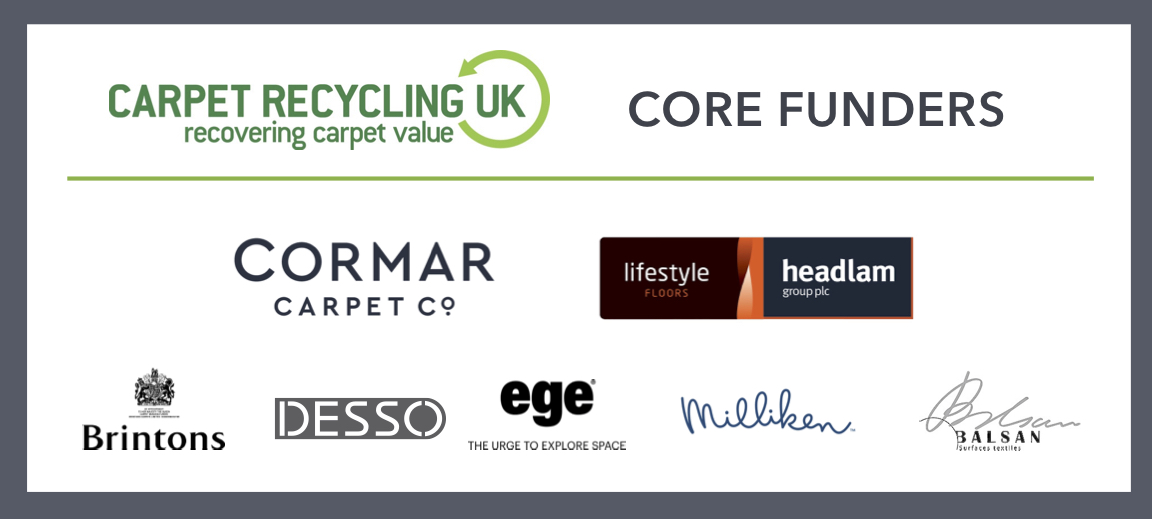
The volume of carpet waste diverted from landfill in the UK has shown a modest increase with 175,252 tonnes reused, recycled or recovered for energy in 2018, according to Carpet Recycling UK.
This represents a diversion rate of 44% – up from 42% and an increase of 7,252 tonnes on 2017, the not for profit membership association reports. Around 400,000 tonnes of waste carpet arise each year in the UK.
Energy recovery accounted for 113,914 tonnes – 65% of the total and a reduction of 10,087 tonnes from 2017. Reuse and recycling of waste carpet was up by 19,338 tonnes on 2017 to 61,338 tonnes, representing 35% of the total.
In 2018, main growth areas were in equestrian surface materials, carpet tile reuse, carpets for cement kilns as a renewable resource to replace fossil fuels for export and in the UK and local incineration of municipal solid wastes (MSW).
Commenting on their 2018 achievements, CRUK Scheme Manager Adnan Zeb-Khan said: “Our Core Funder manufacturing and distribution membership continues to grow, providing exceptional support to CRUK as well as to their customers. These Core Funders are industry leaders in developing voluntary producer responsibility for carpets throughout their lifecycle.”
CRUK’s core funders are Cormar Carpets, Lifestyle Floors/Headlam, Brinton Carpets, DESSO, ege, Milliken and Balsan.
Adnan noted that CRUK’s retailer and flooring contractor membership has increased as more companies recognise cost savings and sustainability impacts for their businesses. “They appreciate the help from our Core Funders to improve their results, in many cases saving thousands of pounds per year,” he continued.
Consistent awareness and interest in recycling carpet waste resulted in around 620 wide-ranging enquiries received by the CRUK team in 2018. CRUK’s social media presence continues to attract enquiries and generate leads from retailers, contractors and recyclers.
Last year’s fifth annual Carpet Recycling Awards celebrated innovations developed by specialist carpet reuse and recycling members across a wide range of categories, including recovering value from carpet manufacturers’ and distributors’ waste to create new flooring products.
Commenting on their 2018 achievements, Adnan added: “We are making progress towards our target of 60% landfill diversion by 2020 and are proud of what we have achieved in our first decade. With strong commitment and support from all our Core Funders, members and the supply chain, we will continue to work tirelessly towards our sustainability goals.”
Looking ahead, Carpet Recycling UK will focus on increasing support from membership across the flooring sector as the 2020 target approaches – equivalent to 240,000 tonnes landfill diversion of carpet waste. The organisation will also promote increased recycled content in textile flooring and ‘circular production’ practices.
Carpet Recycling UK invites support from companies across the carpet sector who wish to raise their green credentials, operate more sustainably and reduce waste. Their 2019 Annual Conference and Awards event will be held on Thursday 18th July at Edgbaston Cricket Stadium in Birmingham. For more information, call Marie Rhodes on 0161 440 8325 or visit www.carpetrecyclinguk.com.
